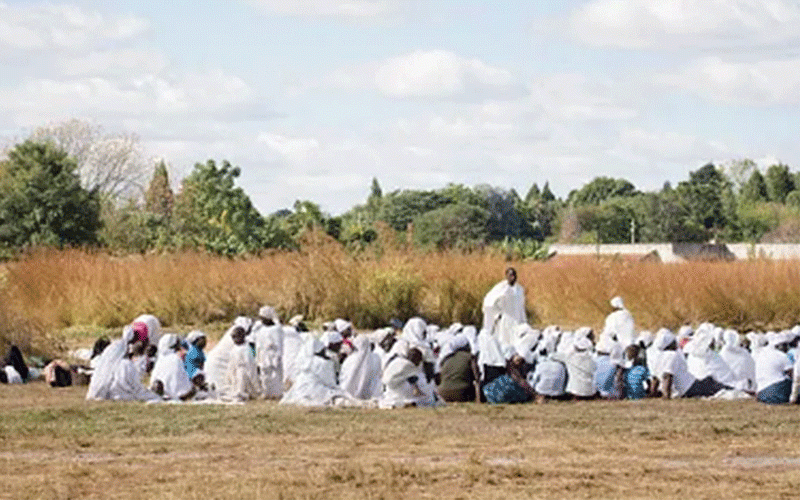
ZIMBABWE'S healthcare system, once a regional beacon of excellence, now stands as a tragic case study in governmental mismanagement and systemic neglect.
This comprehensive analysis examines the multifaceted crisis engulfing the nation's medical infrastructure, with particular attention to recent scandals involving controversial businessman Wicknell Chivayo and their implications for public health governance.
Chronic underfunding and resource mismanagement
The Zimbabwean government's consistent failure to meet its Abuja Declaration commitment of allocating 15% of the national budget to healthcare has created a cascade of systemic failures.
In 2024, only 11.3% was earmarked for health services, resulting in:
- Critical shortages of essential medicines and medical equipment.
- Collapsing infrastructure in major referral hospitals like Parirenyatwa and Sally Mugabe Central.
- An over-reliance on donor funding for basic healthcare services.
- Mavhunga puts DeMbare into Chibuku quarterfinals
- Bulls to charge into Zimbabwe gold stocks
- Ndiraya concerned as goals dry up
- Letters: How solar power is transforming African farms
Keep Reading
The situation has become so dire that patients are routinely asked to purchase their own painkillers, while trauma victims have resorted to using cardboard as makeshift casts due to the absence of plaster.
Cancer patients face particularly bleak prospects, as radiotherapy machines in public institutions are either broken or obsolete.
Corruption: The cancer eroding healthcare
Corruption has metastasized throughout Zimbabwe's health system, with recent scandals highlighting the depth of the problem:
The Chivayo medical equipment scandal
It is alleged that a $437 million contract awarded to Wicknell Chivayo's South African company, TTM Global Medical Exports, for cancer treatment equipment has sparked national outrage. Key concerns include:
- The contract bypassed standard public tender processes.
- Chivayo's company was only registered in November 2024 with a Sandton hotel as its address.
- Payments structured as $110 million annually over four years, with a $52.5 million upfront deposit.
"This deal represents the wholesale looting of state resources under the guise of healthcare procurement," noted political commentator Jealousy Mawarire, who described it as a "heist".
The controversy deepened when President Mnangagwa made unannounced hospital visits shortly after the contract signing, which critics viewed as damage control.
The distraction of philanthropy
While Zimbabwe's healthcare system crumbles, Chivayo has gained notoriety for distributing luxury vehicles to celebrities and ZANU PF allies. This performative philanthropy has sparked complex public reactions:
- Desperate citizens have appealed to Chivayo to redirect his wealth toward healthcare.
- Critics argue this legitimizes questionable wealth accumulation.
- The spectacle diverts attention from systemic issues requiring institutional solutions.
As social justice advocate Tendai Ruben Mbofana warns: "When we pressure Chivayo to use his money to help the poor or fix hospitals, we are inadvertently legitimizing the very money we should be questioning. It's a form of moral laundering."
Infrastructure collapse and human toll
Zimbabwe's healthcare facilities paint a grim picture of institutional neglect:
- Public hospitals lack working toilets, reliable water supplies, and basic medications
- Dialysis patients like Oswald Tanaka Mankanya face life-threatening treatment interruptions
- Only five pathologists serve the entire population of 17 million, creating mortuary backlogs exploited for bribes
Nurse "Memory" (a pseudonym) revealed how officials artificially create delays in post-mortem services to extort grieving families:
"There isn't really a backlog but a fake one is created by police officers, the doctors and mortuary staff to pressure families into paying" . Fees range from $30 to fast-track general post-mortems to $100 to skip legally required procedures entirely .
Workforce crisis and patient suffering
The systemic failures have precipitated a mass exodus of healthcare professionals:
- Over 4,000 health workers have left Zimbabwe since 2021.
- Remaining staff are overworked and underpaid, with some earning less than $200 monthly.
- Government responses to strikes have focused on repression rather than reform, including laws banning strikes beyond 72 hours.
The human consequences are devastating. Patients like Evelyn Soko sit for hours in hospital hallways with critically ill children, ignored by overburdened staff. Others, like Emily Muchabaiwa's brother, receive questionable postmortem results delivered by police officers rather than medical professionals.
A path forward: Solutions and accountability
Addressing Zimbabwe's healthcare crisis requires fundamental systemic changes:
- Financial Reforms: Meet Abuja Declaration targets and ensure transparent budget execution.
- Anti-Corruption Measures: Recover looted funds and prosecute offenders, including thorough investigations of suspicious contracts.
- Workforce Investment: Competitive salaries and improved working conditions to stem brain drain.
- Institutional Integrity: Depoliticize healthcare management and restore professional autonomy.
- Public Oversight: Citizen engagement in monitoring health service delivery and expenditures.
Until Zimbabwe addresses both the symptoms and root causes of its healthcare collapse including the brazen plunder of public resources, ordinary citizens will continue paying the ultimate price for government failure. The road to recovery begins with accountability, transparency, and a genuine commitment to prioritizing human life over political and personal gain.










